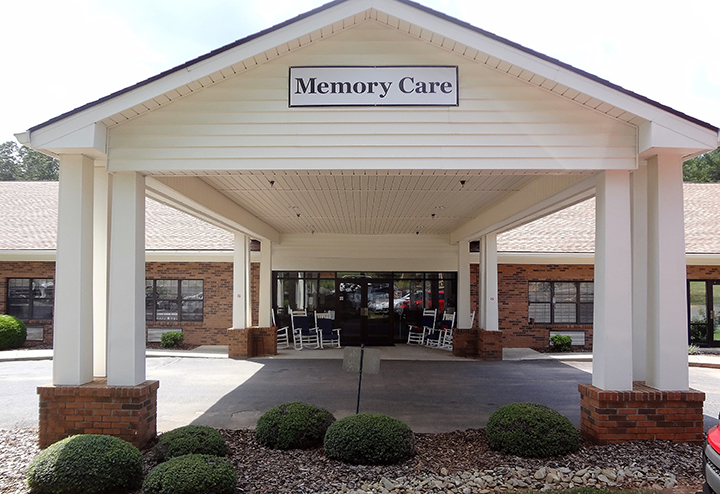Enhancing Quality of Life with Trusted Alzheimers Care Charlotte Programs
Enhancing Quality of Life with Trusted Alzheimers Care Charlotte Programs
Blog Article
Developing a Safe and Helpful Environment for Alzheimer's Treatment
The creation of a secure and supportive atmosphere for people with Alzheimer's is critical in enhancing their top quality of life. This entails not only physical adjustments within the home, such as reducing risks and including familiar elements, yet likewise the application of structured routines and meaningful tasks that satisfy their cognitive requirements. Understanding the emotional and psychological measurements of treatment can considerably influence their sense of security and connection. Checking out these multifaceted strategies can expose critical insights right into effective caregiving techniques that might change the day-to-day experiences of both clients and caretakers.
Comprehending Alzheimer's Requirements
Often, people with Alzheimer's illness exhibit a range of demands that require tailored strategies to care. As the condition progresses, cognitive decrease manifests in numerous means, affecting memory, thinking, and also the capacity to do day-to-day tasks. Caretakers need to recognize these progressing requirements to provide suitable support and make certain a better of life for those influenced.
One important facet of comprehending Alzheimer's needs is recognizing the relevance of regular and knowledge. Individuals frequently find convenience in recognized patterns, which can minimize stress and anxiety and confusion. Caregivers need to strive to produce structured everyday routines that incorporate purposeful activities straightened with the individual's capabilities and interests.
In addition, reliable interaction is vital. Individuals with Alzheimer's might have a hard time to express themselves or comprehend complicated language. Caregivers must use straightforward, clear language, use non-verbal signs, and method energetic listening to cultivate understanding and link.
Lastly, emotional and social demands can not be forgotten. Supplying possibilities for social interaction and keeping connections can significantly improve emotional wellness. Caregivers must encourage engagement in area tasks or family celebrations, advertising a feeling of belonging and objective. Comprehending these diverse needs is essential for producing a supportive care setting.
Creating a Safe Home
Creating a risk-free home for people with Alzheimer's condition is important to minimizing dangers and advertising self-reliance. The design of the space must prioritize safety while enabling personal comfort. Get rid of potential hazards such as loose rugs, sharp objects, and mess, which can lead to falls or mishaps. Make certain that paths are clear and well-lit, as appropriate illumination reduces disorientation and boosts mobility.
Including flexible attributes is likewise critical. Mount grab bars in restrooms and near stairways, and take into consideration using non-slip floor coverings in damp locations. Furthermore, utilizing contrasting shades for wall surfaces and floorings can aid in distinguishing spaces, helping to reduce confusion.
Knowledge is very important for individuals with Alzheimer's. Personalizing the setting with acquainted things and pictures can reinforce a feeling of belonging and security - Alzheimers Care Charlotte. It is also advantageous to have an assigned area for day-to-day activities, such as analysis or crafting, which can supply framework to their day
Lastly, carrying out a protected outdoor room enables secure exploration while getting in touch with nature. By thoughtfully designing the home setting, caretakers can substantially improve the quality of life for individuals living with Alzheimer's illness.
Enhancing Interaction Skills

Non-verbal communication, consisting of facial expressions, gestures, and touch, plays an important function in sharing empathy and understanding. Preserving eye call and a tranquil disposition can enhance the convenience level of the person, promoting a feeling of security.
Moreover, it is essential to practice active listening. This includes being fully existing, revealing persistence, and allowing the individual to express themselves without interruption. Repeating might be required; caregivers need to be prepared to take another look at questions or subjects, as people with Alzheimer's may battle with memory recall.
Furthermore, using visual aids or cues, such as pictures or familiar items, can facilitate acknowledgment and involvement. Inevitably, improving interaction skills has to do with building trust and producing an environment where people feel heard, valued, and recognized, consequently enhancing their lifestyle.
Urging Social Interaction
Cultivating significant social interactions can substantially boost the health of people with Alzheimer's disease. Involving with others not just helps fight sensations of isolation but likewise boosts cognitive feature and psychological health and wellness. Structured social activities, such as group arts, crafts and click to investigate games, or songs therapy, produce opportunities for locals to get in touch with peers and caretakers, which can lead to boosted state of mind and reduced anxiousness.
Developing an inviting setting that motivates socialization is crucial. This can be attained by setting up common spaces that help with interaction, such as relaxing seating locations or activity rooms. Furthermore, integrating culturally relevant and familiar activities can encourage and spark memories involvement, allowing individuals with Alzheimer's to feel even more linked to their previous experiences.
Furthermore, caregivers ought to be trained to recognize and advertise social involvement amongst homeowners. By focusing on social communication, we can substantially enrich the lives of those living with Alzheimer's, promoting a sense of community and belonging.
Sustaining Caregiver Wellness

To sustain caregivers, companies should provide normal training and academic resources to boost their understanding of Alzheimer's illness and caregiving methods. Providing access to respite treatment services permits caretakers to take necessary breaks, lowering tension and exhaustion - Alzheimers Care Charlotte. Additionally, fostering an area through support system can promote emotional sharing and the exchange of practical guidance amongst caregivers, developing a network of shared support
Psychological health and wellness sources, such as therapy solutions, can also be crucial in resolving the emotional toll caregiving can take. By focusing on caretaker health, we develop an even more sustainable caregiving atmosphere that not only benefits the caretakers themselves yet also boosts the total quality of care gotten by people with Alzheimer's. Eventually, sustaining caretakers is an essential part in promoting a efficient and thoughtful treatment setup.
Conclusion
Finally, the production of a safe and supportive atmosphere for people with Alzheimer's is essential to boosting their lifestyle. By prioritizing safety and security via thoughtful design, cultivating psychological wellness with acquainted components, and advertising engagement through structured routines, caregivers can substantially influence the general experience of those influenced by this problem. In addition, supporting caregiver wellness is important, as it eventually adds to a more caring and reliable treatment atmosphere.
Rep may be needed; caretakers need to be prepared to take another look at inquiries or topics, as individuals with Alzheimer's may have a hard time with see this here memory recall.

Report this page